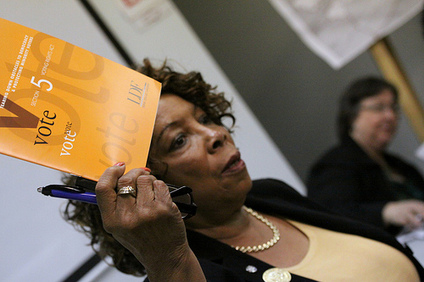Incentivize changes in behavior for an increase in participation
From voting in the upcoming election to recycling, engaging people in their communities is a challenge for government—and other organizations, like PTAs, Scout groups, and Neighborhood Watches. A team of British researchers from the University of Manchester and the University of Southampton recently tackled the issue with research, carrying out a range of innovative experiments to get robust evidence about ways to change civic behaviour. Their work is published in a report, “Rediscovering the Civic and Achieving Better Outcomes in Public Policy”, funded by the Economic and Social Research Council.
They say that if approached in the right way, citizens are definitely willing to change their behavior and do more to help themselves and others.
The researchers focused on comparing the effectiveness of ‘nudge’ techniques, where people are offered incentives to change their behaviour, and ‘think’ techniques, which takes a planned approach where people are given information, the opportunity to discuss and debate a subject, and then opportunity to act. Nudge techniques include doorstep canvassing, a person receiving feedback on their actions, and public recognition of a person’s contribution. Think techniques include passing out written information and online debate forums.
The team found that motivation via nudge yielded overall better results, but those results were not always sustainable in the long term.
For example, in a recycling experiment, there was a ten per cent increase in household recycling as a result of doorstep canvassing. But the initial improvement faded—after three months, the increase was just four per cent.
“The think experiments gave us more modest results, but it does not mean that Governments should dismiss this approach,” argues lead researcher Professor Peter John. “Face-to-face techniques, more so than online, offer the potential for a richer and more complex platform for discussion and participation.”
Interestingly, the researchers found that people with positive feelings about their neighborhood, but with a distrust of government institutions, are more likely to get involved in their local area.
“The findings are very positive and supports the idea that a local approach using nudge and think techniques can lead to citizens getting involved in collective neighbourhood activities,” states Professor John. “Based on our findings we suggest that a mixture of nudge and think techniques combined with opportunity for positive two-way feedback— government to citizen and citizen to government—is needed.”
You can apply these behavioral approaches to business and work settings too!
Image: Some rights reserved by longislandwins

